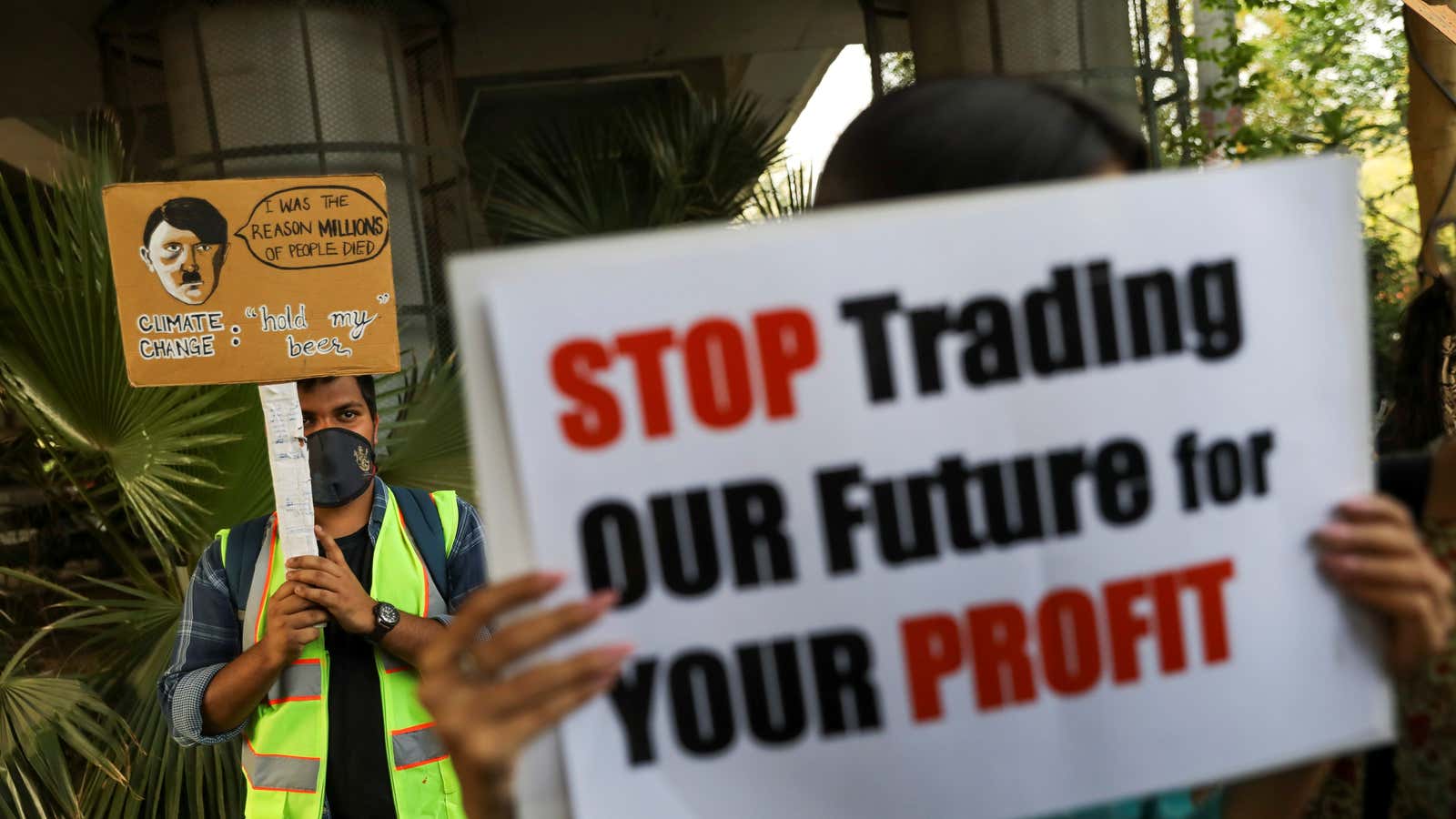The Indian banking sector may simply be unprepared with business strategies to help achieve its new and ambitious climate targets.
Twenty-nine of India’s 34 biggest banks have scored less than 10 out of 20 points on this front, according to the Climate Risk Horizons (CRH) report (pdf). These 29 represent a market capitalisation of 11.85 lakh crore rupees ($155.3 billion) as of March 31, 2021.
The report views this as a red flag on India’s preparedness for a carbon-neutral economy.
“The fact that even large, media-savvy public and private sector institutions such as SBI (State Bank of India), Union Bank, ICICI Bank, etc, are performing so badly should be extremely worrying for investors, and something that the regulators must address,” the report has said.
It highlights the scarcity of public information needed to gauge the sector’s preparations.
Only 2 Indian banks have a timeline for a net-zero target
While private lender YES Bank is India’s highest scorer in terms of sustainability disclosures, none else, except HDFC Bank and YES Bank, have even set net-zero targets, leave alone implementation plans, for 2030.
Only Federal Bank and Suryoday Small Finance Bank refuse loans to construct new coal power plants or expand existing ones. The former is also committed to avoiding oil and gas exploration.
Public sector banks, which are major capex-funding sources, lag on sustainable finance—SBI ranks sixth.
There is a possibility of long-term damage to the Indian economy if regulatory bodies Reserve Bank of India and Securities Exchange Board of India, do not take corrective action immediately.
“Fiscal measures such as a supportive taxation policy for green finance would help bring transaction costs down and promote better lending. Besides, India also needs green infrastructure investment trusts to facilitate deeper green bond markets and green finance instrument innovation,” the World Economic Forum had stated in a report in January.
India needs a clear target for divesting from fossil fuels
India has set aggressive renewable energy targets for the agriculture and transport industries.
“Banking institutions need to disclose the levels of financing for these and other climate mitigation and adaptation sectors,” said the Climate Risk Horizons report.
Indian banking, under rising bad-loan pressure, has direct exposure to fossil fuels in three main sectors—electricity, chemicals, and automobiles. This accounts for 24% of the overall credit extended to industry.
Several industries are also indirectly linked to fossil fuels, the RBI noted. Their bad-loan ratios may be sensitive to such a transition, and the impact on overall banking must be monitored closely, its latest bulletin (pdf) has said.
